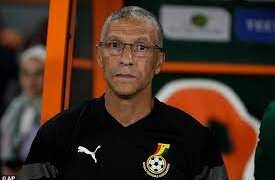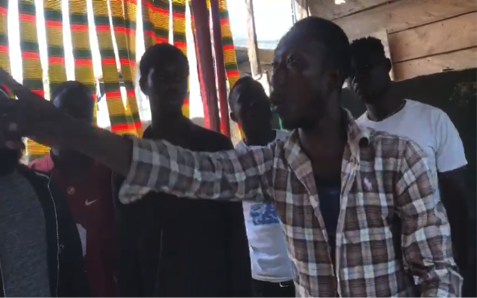Some homeless and unemployed youth in the Ejisu Municipality of the Ashanti Region of Ghana have protested constant police swoops on them.
Speaking to Crime Check Foundation (CCF) during a visit to Ejisu, the young men who are desperately searching for jobs said the action by the police do not only constitute a violation of their rights but also affect their livelihoods.
The dejected youth narrated their awful experience to CCF during a visit to the Municipality in collaboration with a Community Monitoring Team constituted for the Municipality on 27th January 2022.
The visit forms part of the implementation of the Open Society Initiative for West Africa (OSIWA) funded “Decriminalizing Vagrancy Laws and Advocacy” project.
According to them, their only ‘crime’ is that they have “guilty-looking faces or they hang around a drinking bar, some distance away from the main lorry station in wait for opportunities for menial jobs such as driver’s mate for commercial cars”.
One of them said, on a particular day, the police came around in a truck with community police personnel (who are non-professionals), and all they could hear was “arrest them, arrest them, arrest them.”
Seventeen (17) of them were rounded up into the truck and were taken to the Police station where they were remanded into custody.
They told the CCF team that the police ended up wasting their time and their opportunity to make some money since nothing incriminatory was found on them.
Position of CCF:
While CCF plans to engage the police on the claims by the homeless and jobless youth in the Ejisu Municipal, the organization is pleading with the Ejisu Municipal Police Command and the Ghana Police Service to operate within modern policing principles to ensure law and order in communities.
About the CCF-OSIWA Project:
The “Decriminalizing Vagrancy Laws and Advocacy project is being implemented in twelve (12) Metropolitan, Municipal and Districts Assemblies (MMDAs) across Greater Accra, Central and the Ashanti Regions of Ghana. The main aim of the project is to create an enabling environment for vagrants (including the homeless and other voiceless persons) to know, claim and exercise their rights to end criminalization of homelessness and poverty in Ghana. The intervention is consistent with Sustainable Development Goal #16.3: Justice for All by 2030 and an opinion ruling on 4th December, 2020, by the African Court on Human and Peoples’ Rights, that vagrancy laws or laws which tend to affect mainly the poor and homeless persons contravene the African Charter on Human and Peoples’ Rights.
About OSIWA:
Established in 2000, the Open Society Initiative for West Africa (OSIWA) is a grant-making and advocacy organization focused on equality, justice, democratic governance, human rights and knowledge generation. It is part of the global network of Open Society Foundations spread across 37 countries around the world.
By Cosmos Akorli

















































